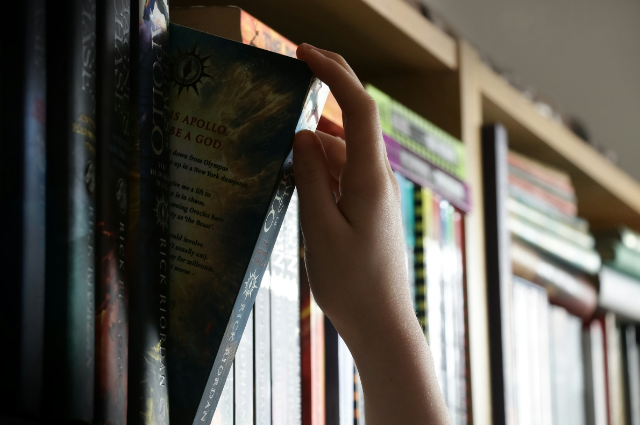
Photo by Pierre Bamin on Unsplash
One of the primary ways in which human beings have always recorded life around them is in the written form, which would be classified as literature centuries later. What authors saw around them was depicted either in the prose form in the form of diary entries such as Anne Frank’s The diary of a young girl, to tell the horrors of the Holocaust as well as to define the roles of women in the world, or else the authors were inspired by the social and scientific community around them and penned stories in a fictional manner to predict or hypothesize the upcoming future in terms of development. These are apparent in the works of George Orwell’s Animal Farm and Aldous Huxley’s Brave New World.
Poetry, although with no discernible definition, began to encapsulate the sensitivities of life, ranging from romance to fear to anger to spirit to happiness, aesthetically and rhythmically to engage with both the hearts and minds of the readers. W.B. Yeats’ The Second Coming, written shortly after the events of World War 1, predicted something worse coming in the future, and the Lord himself won’t be able to step down on the planet to save us from the catastrophe.
What earlier was an art form for the minority but had the potential to reach and reflect the lives of minority just by existing on a book five by six inches, soon saw itself reaching the lives of millions with improvement in technology and mass communication and people from all walks of life, ranging from engineers to management consultants to grid workers to waiters waiting at the tables either in a café or restaurant and soon after came the worst trend for literature, the dilution of its definition to the concept of romance or love. Love for all its existence can be one of the defining fields of literature, but not the entirety of the concept of literature.
When a student declares to his peers or family members that he is studying literature, more specifically English Literature, the first impression, and usually a stereotypical one, is the association of Shakespeare. While this stereotypical association is certainly an honorable one, it’s the work of Shakespeare that induces this stereotype that is the most concerning, Romeo and Juliet.
Literary industry has become subject to a thought cartel because of its rampant availability and just the usage of a pen and paper or just your thoughts and an electrical device with a typing mechanism and that has led to its dilution and amalgamation with other media which are primarily meant for entertainment and might lead to its inevitable downfall.
Websites and applications like Wattpad have led to the gross amalgamation of franchise literature, which is like the junk or processed industry meant to cater to the taste buds of the mind but doesn’t lead towards the creativity or imagination intended to enrich and nourish the mind, soul, and heart. These stories are primarily written for the silver screen but in the form of literature, but don’t serve the predictability or theorizing that literary authors aim to attain with their works. For example, Ernest Hemingway’s seminal work which won him the Nobel Prize in Literature, The Old Man and the Sea, is viewed by many as a timeless tale of an individual’s struggle and determination in the face of obstacle when the book’s protagonist struggles to catch a big fish for many days and his inevitable journey towards catching one which leads towards his journey towards self discovery and at the end of the book the famous quote also arises, “ a man can be destroyed but never defeated.”
This is something that most cash grab books and not just cash grab but also written books with no arc, theory, story, or character, will never attain as the authors behind these works have never invested themselves in the science of writing or theory of literature.
Literature was always meant to encompass all the experiences of life ranging from familial to patriotism to love to fear to guilt to loss to agony to career etc. although the theory of literature might have been established very later on it doesn’t undermine the value or message that the works have been trying to convey and are still relevant centuries later. Literature has been interpreted by various scholars from various fields, and a young literary artist is primarily taught literature along with cultural studies, psychology, sociology, literary theory, and criticism. These enhance the view of an author or yet-to-be-author towards certain texts, and this might improve his or her writing and understanding of texts and characters significantly.
For instance, while reading the Mahabharata, an individual who has read about the concept of “tabula rasa” given by the Scottish philosopher John Locke will be able to relate and apply it to the upbringing of Duryodhana in the epic. Similarly, when reading Animal Farm by George Orwell, a well-versed individual in different subjects about literary studies might be able to catch the symbolism behind the pig ruling over the other animals and the allegory to communism and fascism in the story.
This could be simplified further by realising that the analysis of theses texts through various lenses of other subjects brings us to a simple realization that the process of simplifying any concept in the world is the most difficult thing in the world because of the innumerable processes involved behind it.
Writers who wish to escalate their works to literary greatness must realise that the studying of life and various subjects along with it, is inevitable for a work to be great and not enclose it within a box called “ love” as if it is the only solution to the diverse problems of the world and can offer depth and nuances to the concept of life to better our understanding towards it.
